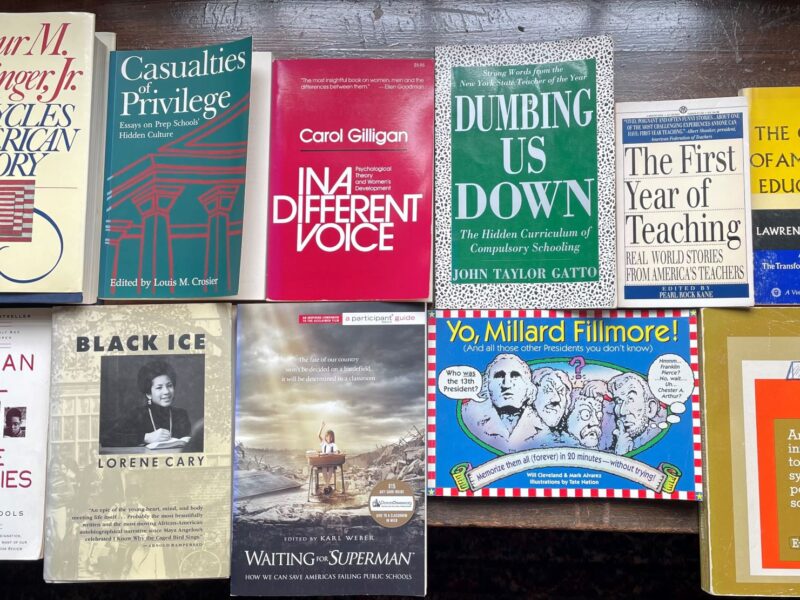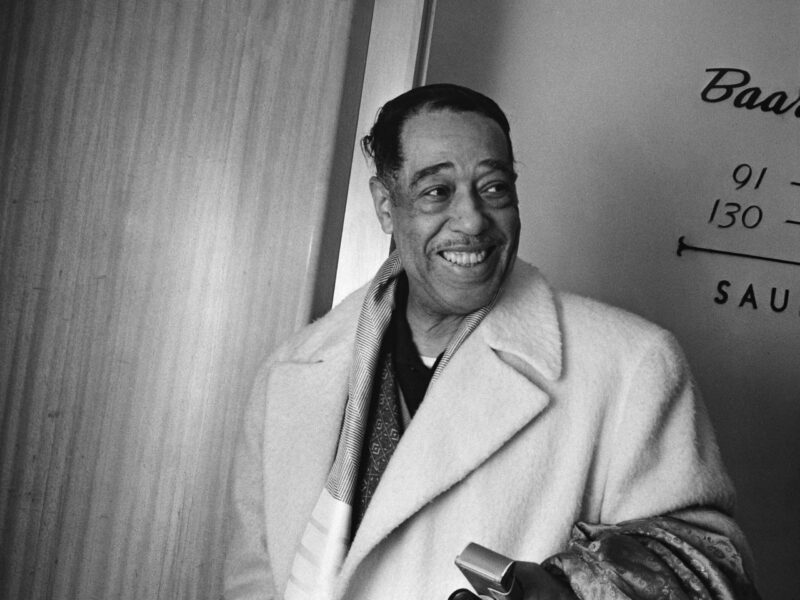Today’s parents exhibit a level of engagement that I could not have imagined when I began teaching in 1976. From homework to playground behavior to preparing college applications, the demarcation line delineating who-is-responsible-for-what has never been as blurred or varied as it is today.
While a number of books offer commentary on the helicopter parent, this provocative book gets at the why. It starts with a story.
March, 2011 – Kim Brooks, her husband, and two young children (age 4 and 2) live in Chicago. They are paying a visit to her parents in the suburban Virginia community where she grew up. While hurriedly packing for the flight back to Chicago, she realizes that she lacks the only headphones that her 4-year old son will tolerate for air travel. Her hopes of sneaking out the back door for a quick solo trip to Target evaporate as her son proceeds to beg to accompany Mommy. She relents. By the time the car arrives at Target, her son has become fully immersed in an iPad game and now begs to stay in the car. She pauses:
I looked at the clock. I looked back at my son. Then for the next four or five seconds, I did what it sometimes seemed I’d been doing every minute of every day since having children, a never-ending, risk-benefit analysis. I noted the mild weather. I noted how close the parking spot was to the front door, and that there were a few other cars nearby. Mostly, though, I visualized how quick, unencumbered by a fussing four-year-old, I would be, running into the store, grabbing a pair of headphones, checking out, and coming back to the car. So I let him wait there. I told him I’d be right back. I opened the windows halfway to ventilate the car. I child-locked the doors and double-clicked my keys so that the car alarm was set…. I went into the store to get the headphones.
The transaction at Target went off without a hitch. Brooks returned to her parents’ home, gathered up her family, and caught their flight back to Chicago. Little did she know that those seemingly uneventful five minutes would soon evolve into a two-year legal nightmare that would include criminal charges and community service obligations.
It seems that a concerned citizen had observed the 4-year old boy sitting by himself in the car, took a short video of the scene, and then submitted it to local police. What followed was an odyssey that has to be read to be believed.
In between dealing with lawyers and law enforcement officials, Brooks began exploring the answers to questions that had come to plague her:
- Are there other cases out there like mine? (Answer: Yes)
- Is today’s world really less safe today than it was when I was a kid? (Probably not)
- How did our culture get to such a place of paranoid parenting?
- How can parents of lesser means balance the demands of parenting vs. work?
Economically worthless…emotionally priceless
Against the backdrop of the ongoing saga of her legal debacle, Brooks began by exploring the history of parenting in America. The very decision over whether to have children at all, let alone how many, has undergone dramatic evolution. In the 19th century, it was common for parents to have as many children as possible as quickly as possible for economic reasons: e.g., more help on the farm. Then the baby-boom of the 50s and 60s featured smaller families with working dads and stay-at-home moms. Then we ‘boomers grew up to modify this model with fewer children and both parents working.
Today’s parents have turned the 19th century norms inside out: fewer children, sometimes later than once thought biologically possible. Brooks references sociologist Viviana Selzer’s characterization of the “sacralization of child life” and a generational mindset where children have become “economically worthless and emotionally priceless.”
Given such careful consideration given to all facets of parenthood, there is a growing cultural sense that there is no excuse for not doing it very, very well. Hence, claims Brooks, parenting has turned into a competitive sport, one that nobody ever admits to playing. And, she writes, “It’s hard to win while pretending not to play.”
Competitive & Paranoid Parenting
What’s more, competitive parenting has an accomplice: paranoid parenting. The result: “We now live in a society where most people believe a child cannot be out of an adult’s sight for one second, where people think children need constant, total adult supervision, where we believe that predators are lurking on every corner, waiting to steal or sodomize or kill our children.”
Beyond obsession with safety, paranoid parenting is fueled by a growing sense that the path to upward social mobility, celebrated in countless depictions of the post-WW2 “greatest generation,” has narrowed to a slow trickle. We routinely hear pundits describe the current generation of teenagers as the first to doubt that it will surpass its parents in either job status or income. Brooks refers to sociologist Frank Furedi (author of Paranoid Parenting) who describes “a kind of ‘parental determinism’ that begins at conception and extends into adulthood. This determinism leads parents to take on the job not just of loving, feeding, and teaching their children, but of providing them with endless opportunities for adult-directed play, entertainment, and enrichment.” (See athletic travel teams.)
All of this culminates in a college placement process that has transformed from an important coming-of-age rite of passage for all to an embarrassment of parental over-engagement for far too many. Brooks quotes Yale’s William Deresiewicz, author of Excellent Sheep: The Miseducation of the American Elite and the Way to a Meaningful Life (2015): there comes a point when “the main thing that’s driving the madness is simply the madness itself.”
And the madness does not necessarily stop with college enrollment. Brooks writes, “Attending college, once an entryway to early adulthood, now, for many children of privilege, seems to mark the beginning of a second phase of extended adolescence in which young people make a series of attempts at independence while often enjoying the financial and emotional support and intervention of parents. In this way, childhood has not vanished but expanded.”
The Availability Heuristic
Laura and I just returned from China where we conducted a speaking and signing tour in support of the new Mandarin translation of our book, The Biggest Job We’ll Ever Have. At each stop we would tell the story of how our mothers would say to us on a Saturday morning: “It’s a beautiful day. Get outside and I don’t want to see you until dinner time.” As we have experienced across the United States and in Europe, we would invariably look over an audience of heads nodding in agreement. Is it really less safe today? Before you answer, a few factors deserve consideration.
One is the phenomenon that psychologists call the availability heuristic: “In its simplest terms, the availability heuristic tells us that people judge the likelihood of something happening not by facts or statistics or rational thought, but by the ease with which we can recall an example of its happening.”
The availability heuristic, claims Brooks, causes us to focus on occurrences that are both statistically very unlikely and extremely frightening. It also causes us to place shockingly insufficient focus on what she and other social scientists believe is the greatest current threat to children in America, far more than pedophiles or over-heated cars: childhood obesity and the health disorders related to it.
Another factor relates to the notion of competitive parenting. One mother says, “I worry that if I let them out of my sight, other people will see us and think I’m doing something wrong. I feel like it doesn’t matter what I think; that if other people think I’m doing something dangerous, then it’s dangerous. I suppose I can’t quite tell where my own anxieties end and other people’s begin. I don’t know if I’m afraid for my kids, or if I’m afraid other people will be afraid and will judge me for my lack of fear.”
A third factor involves socio-economic considerations. Brooks interviewed a mother who works at a McDonald’s while her daughter plays in a park across the street. The mother explains that circumstances force her to choose between work and watching her child because paying a baby-sitter is out of the question.
Brooks quotes law professor David Pimentel: “If you make it a crime to leave a child out of your sight or the sight of a nanny or another paid professional for a second, then you’re basically saying that poor people can’t be parents… You’re saying that good parenting is the kind of parenting practiced by affluent white people in suburban America at the beginning of the twenty-first century.”
The World Anew
Near the end of her book, Brooks captures its essence: “It is not, in the end, our connection to children that saves us and offers humanity, faith, and hope; it’s our ability to separate from children, to let them separate from us. Their ability to escape us and transcend us, to discover their own way of being with all the pain and danger that entails, leaving us behind as they try to do better, is what can make the world anew.”
Read (and heed) this book.
Onward, Malcolm Gauld


